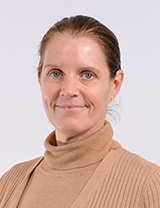
National Poison Prevention Week is March 18-24. Dr. Suzanne Doyon, who joined UConn Health as the medical director of the Connecticut Poison Control Center in November, shares her expertise as a medical toxicologist.
What’s trending in toxicology?
The teenager laundry pod challenge occupied the airwaves in January. Local media helped us get the word out about this trend and the Connecticut Poison Control Center was featured in many stories. Carbon monoxide poisonings have kept us busy recently following the nor’easters and bomb cyclones.
What are the most avoidable poison hazards?
Unsecured household products and unsecured medications are still the number one avoidable poison hazard in the home. Other sources of calls are medication errors in the elderly, especially if they do not use pill dispensers. As a result, the Connecticut Poison Control Center supports child-resistant packaging and poison prevention practices and the use of pill dispensers by the elderly.
What’s most asked about on calls to the poison control center hotline?
The most common types of call remain unsupervised ingestions in children, usually involving personal care products (shampoos, creams, etc.) or household products (detergents, cleaners, etc.)
What makes the Connecticut Poison Control Center successful in its mission?
The Connecticut Poison Control Center is staffed 24/7 by nurses and pharmacists with extensive training and knowledge of poisons and poisonings. Collectively, the poison specialists have over 100 years of experience in poisonings. The person answering the phone is an expert. The hotline is a service is free to the caller.
What brought you to UConn Health?
I am a medical toxicologist interested in public health, especially opioid use disorder. My previous position was assistant professor in the Department of Emergency Medicine at Johns Hopkins University School of Medicine, and prior to that I was medical director of the Maryland Poison Control Center. I missed doing poison center work. The position of medical director of the Connecticut Poison Control Center opened up and the rest is history.
The Poison Control Center Hotline is 800.222.1222, offering free and confidential information around the clock.